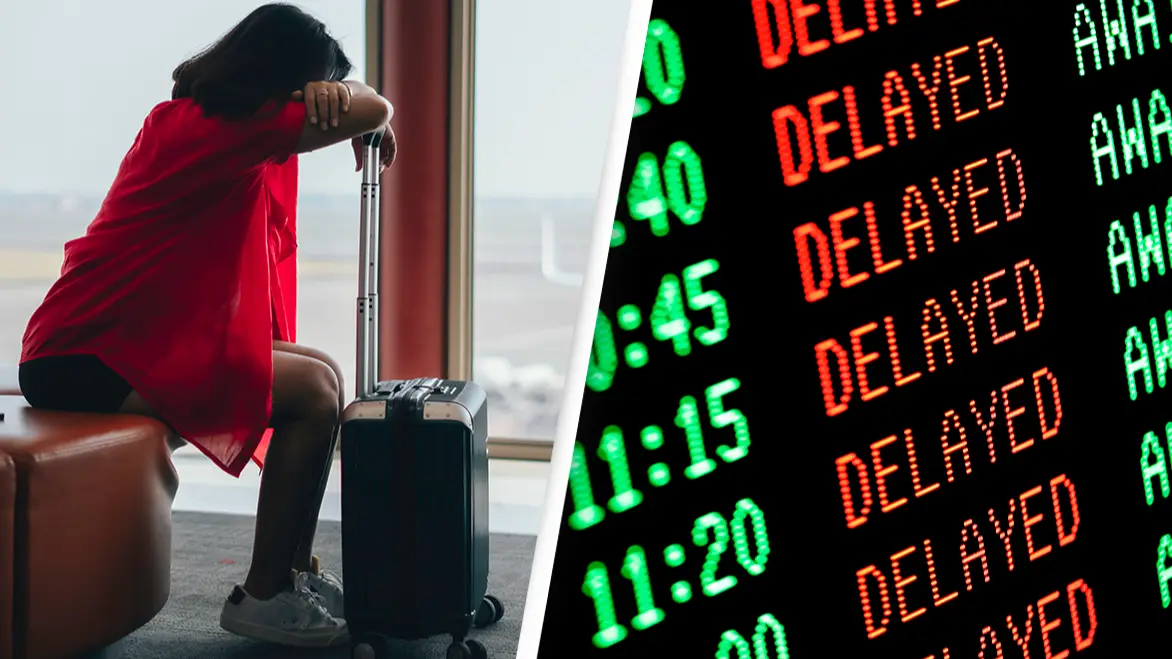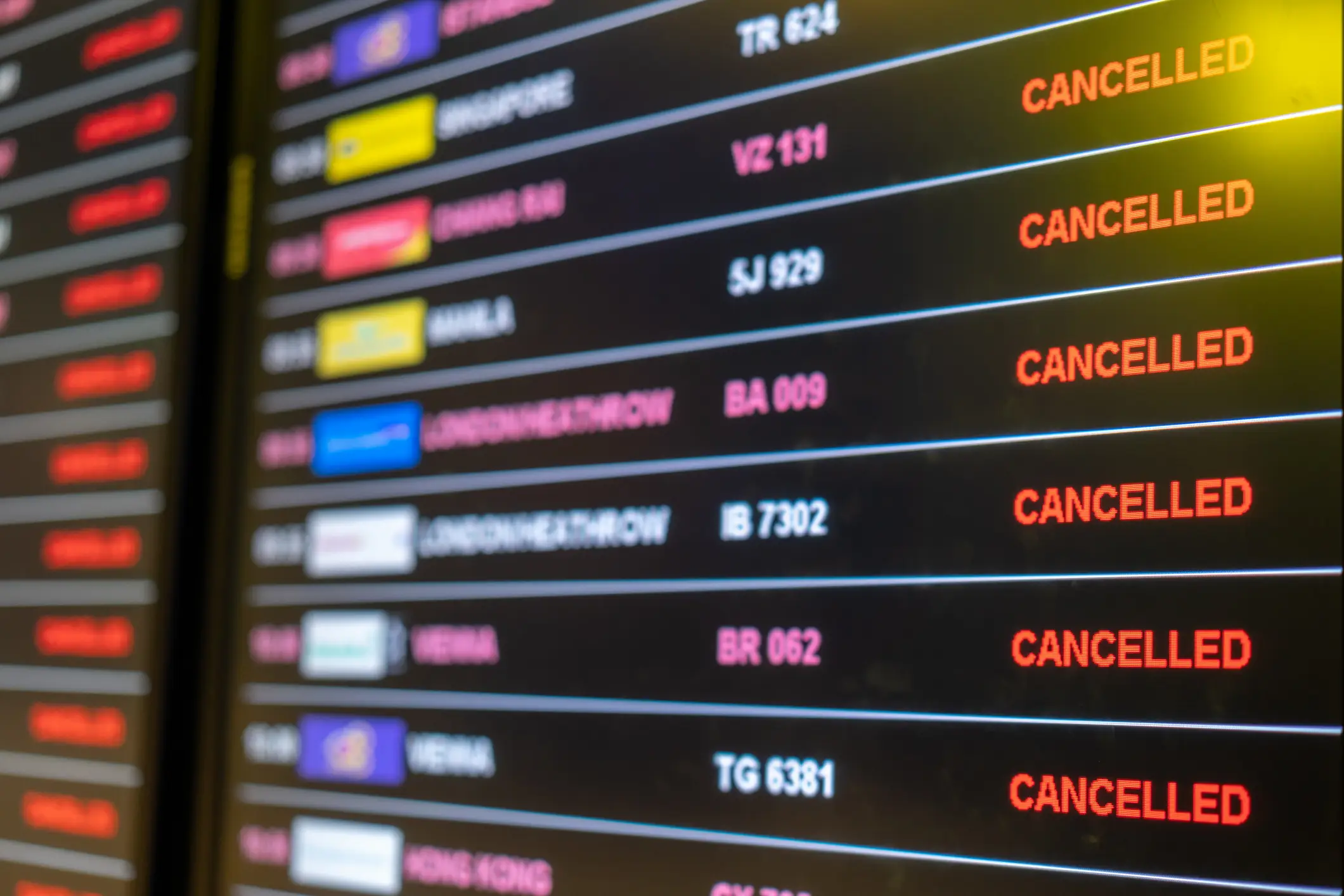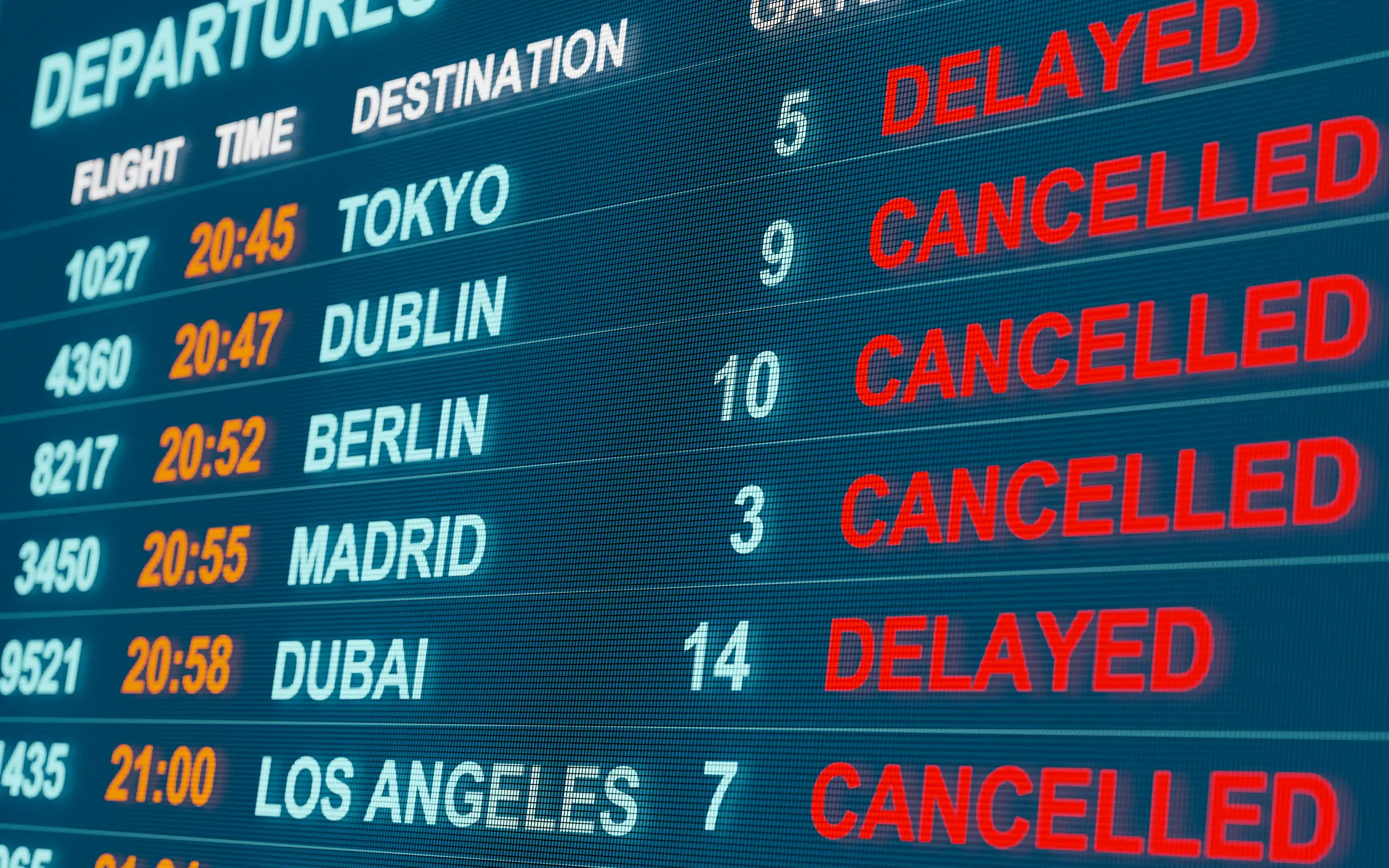
Flying can be a stressful experience at the best of times, so when you add delays into the mix everything gets a whole lot more complicated.
Of course, small delays of anywhere between 30 minutes and one hour are perfectly normal.
I mean, when do flights ever leave on time?
But when you get to the point of a three-hour delay, then there's a bit of a problem.
Advert
And a lot of flyers don't know their rights when it comes to such long delays, so let's explain it all now.
Essentially, what you do not want to do under any circumstance is leave the airport.
Back in April, the Biden-Harris Administration announced that the U.S. Department of Transportation (DOT) issued a final rule that requires airlines to promptly provide flyers with automatic cash refunds when owed.
The rule introduced earlier this year makes it easy for passengers to secure refunds when airlines cancel or significantly change their flights, significantly delay their checked bags, or fail to provide the extra services they purchased.

US Transportation Secretary Pete Buttigieg said: "Passengers deserve to get their money back when an airline owes them - without headaches or haggling.
"Our new rule sets a new standard to require airlines to promptly provide cash refunds to their passengers."
Prior to this rule being introduced, airlines were allowed to set their own standards for what kind of flight changes warranted a refund.
This meant that refund policies differed from airline to airline, which made it difficult for passengers and created a lot of uncertainty for them as well.
Meanwhile, the DOT states they have received complaints of some airlines revising and applying less consumer-friendly refund policies during periods of high delays and cancelations.

So, with the latest rules, passengers will be entitled to a full cash refund if their flight is canceled or significantly changed.
Of course, we know what canceled means - but how long does a flight have to be delayed to be considered 'significantly delayed'.
The DOT explains: "Significant changes to a flight include departure or arrival times that are more than 3 hours domestically and 6 hours internationally; departures or arrivals from a different airport; increases in the number of connections; instances where passengers are downgraded to a lower class of service; or connections at different airports or flights on different planes that are less accessible or accommodating to a person with a disability."
